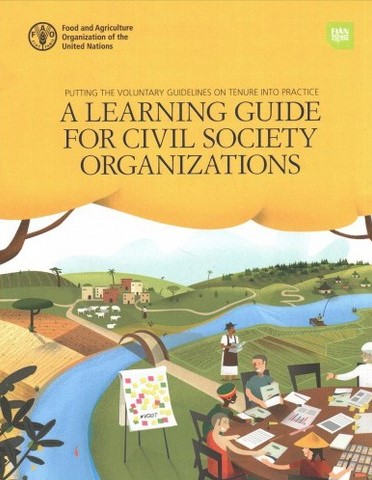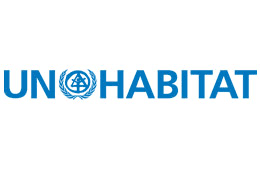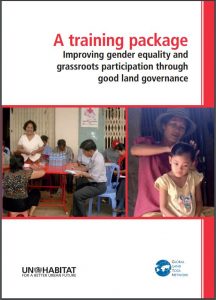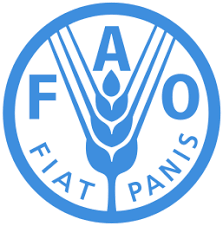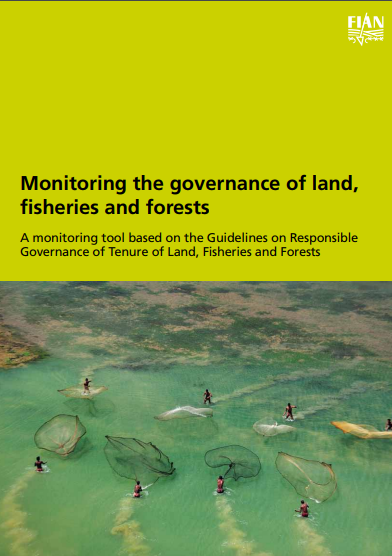PUTTING THE VOLUNTARY GUIDELINES ON TENURE INTO PRACTICE: A LEARNING GUIDE FOR CIVIL SOCIETY ORGANIZATIONS
This learning guide has been designed specifically to give civil society and grassroots organizations a deeper understanding of the Voluntary guidelines on the responsible governance of tenure of land, fisheries and forests in the context of national food security (VGGT) to enable the members of these organizations and their constituents to use the VGGT meaningfully and effectively to improve the governance of tenure in their respective countries.

